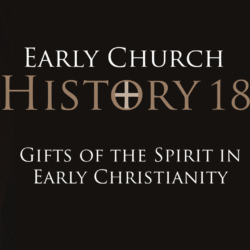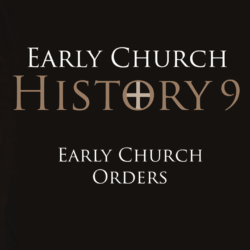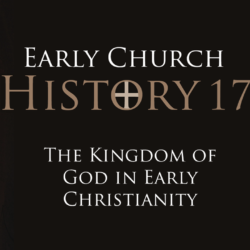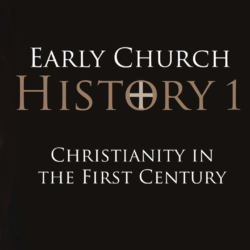This is part 4 of the Early Church History class.
Our focus for this episode is the collection of second-century Christian literature known as the Apostolic Fathers. In total, there are 11 authors in this collection, 9 of whom we will briefly cover today. You’ll learn about the earliest Christian documents outside the New Testament, two of which were possibly written even before the last book of the New Testament. What did Christians write about? Although the Apostolic Fathers is far from cohesive, they do give us a great window into some of the dominant threads of Christian thought in the generation after the apostles died.
Listen to this episode on Spotify or Apple Podcasts
—— Links ——
- More Restitutio resources on Christian history
- More classes here
- Support Restitutio by donating here
- Join our Restitutio Facebook Group and follow Sean Finnegan on Twitter @RestitutioSF
- Leave a voice message via SpeakPipe with questions or comments and we may play them out on the air
- Intro music: Good Vibes by MBB Attribution-ShareAlike 3.0 Unported (CC BY-SA 3.0) Free Download / Stream: Music promoted by Audio Library.
- Who is Sean Finnegan? Read his bio here
—— Notes ——
The Apostolic Fathers is a collection of Christian writings primarily from the second century.
- The Didache
- Epistle of Barnabas
- 1 Clement
- Shepherd of Hermas
- Epistles of Ignatius
- Fragments of Papias
- 2 Clement
- Epistle of Polycarp
- Martyrdom of Polycarp
- Fragment of Quadratus
- Epistle to Diognetus
Sources for APF (Apostolic Fathers)
- Christian Classics Ethereal Library (ccel.org)
- Michael Holmes’ translation (available in English or English in parallel with Greek)
Didache (60-150)
- Jewish-Christian document
- partly focused on righteous living and partly on church order (baptism, communion, fasting, hospitality, etc.)
- citations: Didache 9.1-3; 8.1; 2.1-2
Research Recommendation
- David Bercot’s A Dictionary of Early Christian Beliefs
Epistle of Barnabas (70-132)
- author referred to as Psuedo-Barnabas
- allegorizing method of interpreting scripture, especially the Old Testament
- citation: Barnabas 10.11-12;
1 Clement (80-100)
- letter written from Roman leader to help church of Corinth resolve a dispute
- citations 1 Clement 59.4
Shepherd of Hermas (100-150)
- freed slave writing on holiness and repentance
- citation: Shepherd 59.5-7
Epistles of Ignatius (108-160)
- bishop in Antioch
- arrested and brought to Rome where he faced martyrdom
- three recensions survive: long, middle, and short
- Long Recension
- To the Ephesians
- To the Magnesians
- To the Trallians
- To the Romans
- To the Philadelphians
- To the Smyrnaeans
- To Polycarp
- To Mary of Cassabola
- From Mary of Cassabola
- To Tarsians
- To Antiochenes
- To Philippians
- To Hero
- Middle Recension
- To the Ephesians
- To the Magnesians
- To the Trallians
- To the Romans
- To the Philadelphians
- To the Smyrnaeans
- To Polycarp
- Short Recension
- To the Ephesians
- To the Romans
- To Polycarp
- citations: Ephesians 7.2; Polycarp 3.2 (both from middle recension)
Fragments of Papias (130)
- preferred oral testimony to written[1]
- wanted to get to the truth of the matter
- bishop in Hierapolis
- Citation: Papias 3.3-4
2 Clement (130-160)
- neither a letter nor was it written by Clement
- anonymous sermon
- citation: 2 Clement 9.1-6
Polycarp to the Philippians (135-160)
- the Philippians had requested Polycarp to discuss righteousness
Martyrdom of Polycarp (155-175)
- narrates story of Polycarp’s capture, interrogation, and public execution in Smyrna
- sets precedent for future martyrs
Review
- The Apostolic Fathers is a diverse collection of Christian books from the 2nd century
- major focus Christian morality
- identity vis-à-vis Judaism
- variety of views about Christ
- authenticity (Papias) and unity (Ignatius, 1 Clement)
[1] See also Richard Bauckham’s Jesus and the Eyewitnesses.






